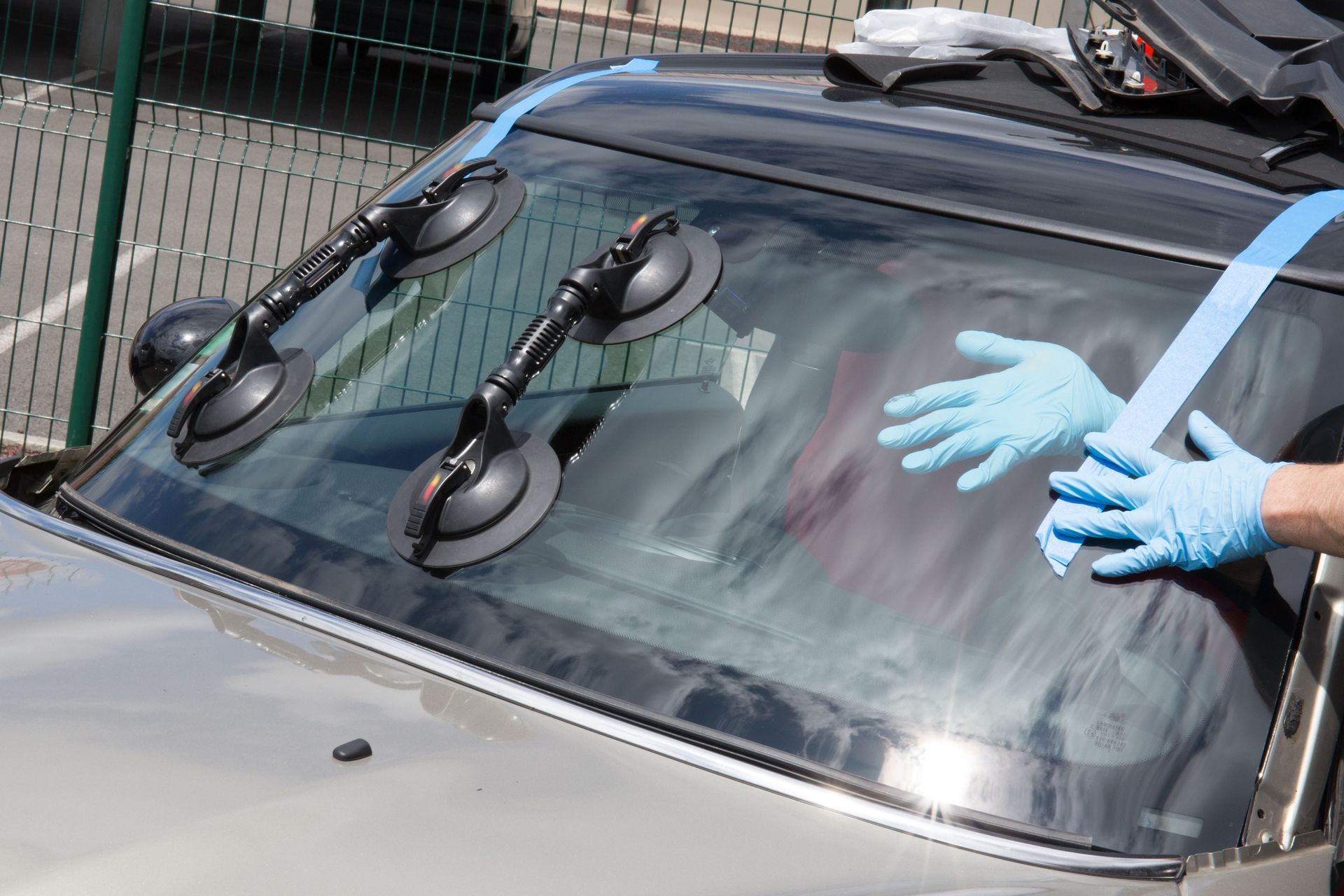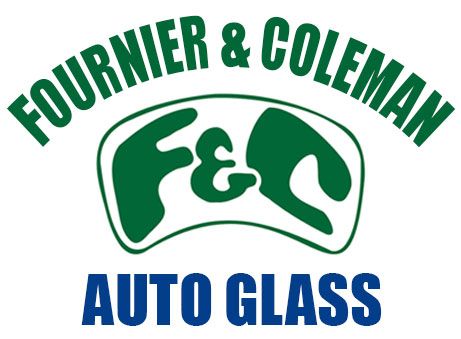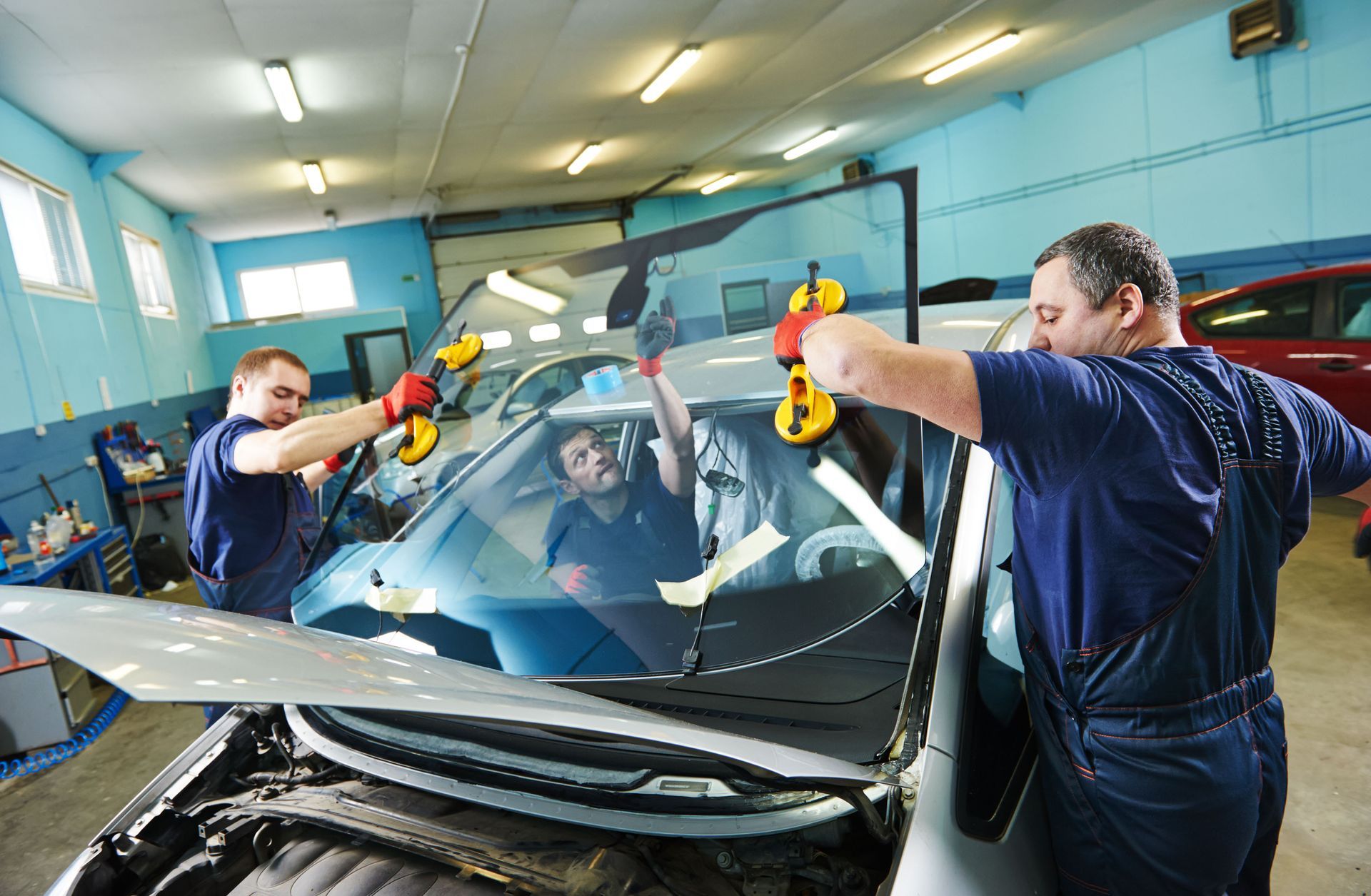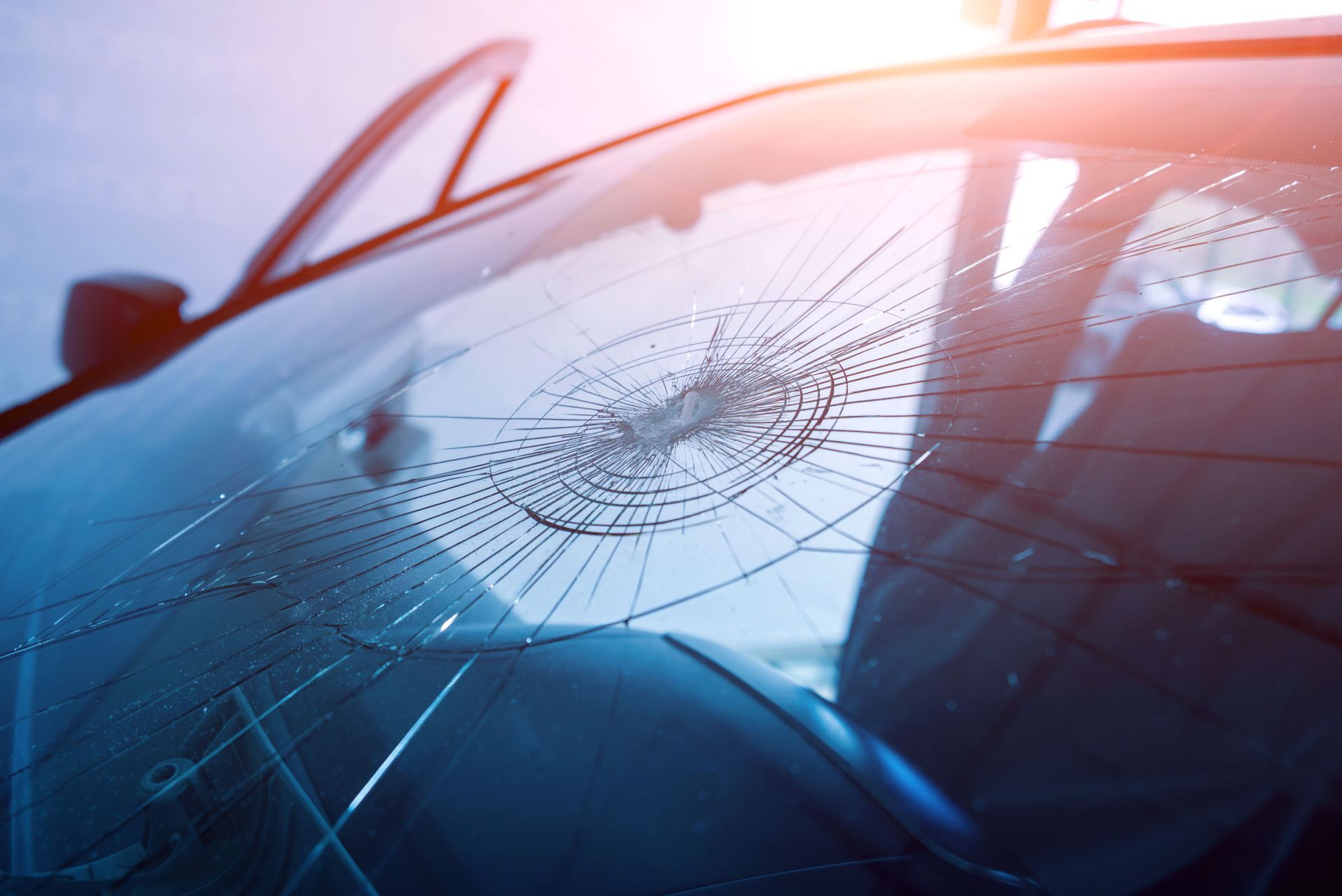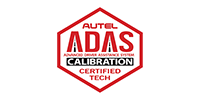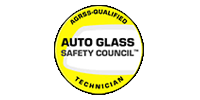October 9, 2025
The weather can have a significant influence on the structural integrity of your car's windshield and windows. Extreme temperatures, moisture, and unexpected weather events can lead to various types of damage that compromise safety. Addressing any damage promptly is crucial, not only for aesthetic reasons but also to prevent further deterioration that may require costly windshield replacement.
The Effects of Extreme Cold on Auto Glass
Freezing temperatures place significant stress on auto glass, particularly if there are existing chips or cracks. Glass naturally contracts as it cools, and when imperfections exist, this contraction can magnify the damage. Even a small chip can spread rapidly in sub-zero conditions, creating larger cracks that compromise visibility and structural integrity. Defrosting a frozen windshield requires care. Pouring hot water directly onto a frozen windshield can create thermal shock, where rapid expansion in one area causes cracks to propagate. Gradually warming the car's interior or using a dedicated windshield scraper helps avoid these sudden temperature shifts. Regularly inspecting your windshield and windows for minor imperfections before winter is essential. Early detection allows for repairs before cold-induced stress turns small chips into extensive damage, potentially saving both money and safety risks.
The Effects of Hot Weather on Auto Glass
High temperatures can negatively impact auto glass over time. When exposed to intense heat, glass expands, and rapid temperature changes, such as blasting the air conditioner on a hot day, can stress existing cracks or chips, causing them to grow. Over time, this can lead to the need for professional repair or windshield replacement. UV exposure can gradually weaken adhesives that bond glass to the vehicle frame, especially around windshields. Parking in shaded areas can help protect the glass, but regular inspection is the best way to identify heat-related damage early.
The Effects of Rain and Moisture on Auto Glass
Rain, humidity, and freeze-thaw cycles accelerate damage progression. A chip that might be minor in dry conditions can expand after repeated wet weather or freezing rain, making early inspection and repair especially important. Moisture presents another set of challenges for auto glass. Water can seep into small chips and cracks, and during colder temperatures, this moisture may freeze and expand, worsening the damage. Continuous exposure to rain can also weaken the adhesives that hold windshields and windows in place, which can eventually lead to leaks. Routine inspections are critical for catching these issues early. Drivers should check for chips, cracks, or signs of adhesive deterioration, particularly after heavy rain. Prompt attention to damage allows technicians to repair minor issues before they become major problems, reducing the likelihood of costly professional repairs or a full windshield replacement.
The Effects of Snow and Ice on Auto Glass
Snow and ice accumulation adds physical pressure to windshields and windows. The sheer weight of ice buildup, combined with contraction from freezing temperatures, can exacerbate existing cracks or cause new ones to form. Clearing snow and ice should be done with care—soft-bristled brooms or plastic scrapers are recommended, while metal tools should be avoided, as they can scratch or weaken the glass further. Identifying damage early is crucial. Sudden chips or expanding cracks as temperatures fluctuate are warning signs that require immediate attention. Prompt repairs prevent emergencies and reduce the likelihood of extensive replacements.
The Effects of Temperature Fluctuations on Auto Glass
Sudden shifts between hot and cold create stress fractures in auto glass due to the differing expansion and contraction rates of the glass and vehicle frame. For example, pouring hot water on a frozen windshield or using high-powered defrosters can cause rapid expansion in one area while the rest of the glass remains contracted, triggering cracks. Regular professional inspections help catch minor issues before they escalate. Technicians can assess chip size, crack length, and adhesive integrity to determine whether repair or replacement is needed. This proactive approach ensures safety and reduces the chances of costly damage caused by temperature swings.
The Importance of Professional Auto Glass Services
Regular inspections for chips, cracks, or weakened seals are essential to maintaining the health of auto glass. Periodic checks allow minor issues to be addressed before they develop into major problems, which is particularly important for drivers in regions with extreme weather. Knowing when to repair versus replace glass is critical. Small chips can often be fixed without extensive work, whereas significant damage may require a full windshield replacement. Being proactive not only saves money but also ensures your vehicle remains safe. Consulting a trained technician can make a substantial difference. Professionals provide guidance on the best course of action and ensure repairs are done correctly, helping you maintain safe driving conditions regardless of the weather.
The Causes of Windshield Damage
Weather events such as hail, freezing rain, or extreme heat can exacerbate existing chips or cracks. Cold or wet conditions may cause small imperfections to expand more quickly, making early detection and professional repair even more important. Windshields and windows are exposed to a wide range of hazards on the road. Small chips often result from road debris like gravel or loose stones, while larger cracks can occur from temperature changes or impact damage. Stress cracks can develop over time due to structural flexing of the vehicle, particularly on older cars or those with prior damage. Even minor dings can compromise the integrity of the windshield and lead to more extensive damage if left unchecked. Understanding these causes helps drivers recognize when a professional inspection or repair is necessary.
The Importance of Timely Repairs for Auto Glass
Weather accelerates damage progression. A minor chip may turn into a large crack after a freeze-thaw cycle, heavy rain, or summer heatwave, so prompt attention is critical. Repairing chips and cracks promptly is essential for maintaining both safety and structural integrity. Small imperfections may seem cosmetic, but they can grow rapidly due to heat, cold, or even simple vibrations while driving. Delaying repair can result in the need for a full windshield replacement, which is more expensive and time-consuming. Regularly monitoring your windshield and addressing any damage early ensures optimal visibility, helps pass safety inspections, and protects the vehicle’s overall structural strength. According to Repairer Driven News, 13 to 15 million windshields are replaced every year.
The Process of Full Windshield Replacement
A properly installed windshield withstands temperature extremes, heavy rain, snow, and other weather conditions. Correct installation ensures that the replacement will maintain visibility and structural integrity in all environments. When damage is extensive or compromises safety, a full windshield replacement may be necessary. Professional replacement ensures that the new windshield, whether high-quality OEM glass or premium aftermarket options, is installed correctly and securely. Expert technicians carefully fit the glass to the vehicle, ensuring a precise seal and proper alignment for your make and model.
The Process of Side and Rear Window Replacement
Side and rear windows are particularly vulnerable to cracking or damage during freezing rain, hail, snow, or sudden temperature swings. Timely repair ensures visibility and safety in all weather conditions. Damage is not limited to windshields. Side and rear windows can also be compromised by impact, accidents, or environmental factors. Broken or cracked side window glass reduces visibility and increases the risk of accidents.
The Benefits of Regular Auto Glass Inspections
Understanding how weather affects your car's glass can significantly reduce the likelihood of costly repairs and enhance safety. Promptly addressing damage—no matter how minor—can prevent larger, more expensive issues, including windshield replacement. For expert auto glass service, including professional repair, replacement, and ADAS calibration, contact Fournier & Coleman Auto Glass for assistance. Our team ensures all work is performed with precision and care.
